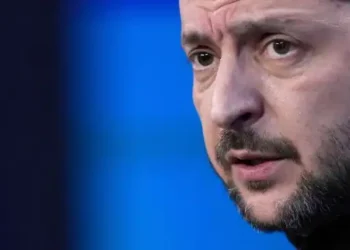The fight against illegal mining in Ghana is turning into a constitutional mockery, as foreign illegal miners are deported while Ghanaian offenders face prosecution.
With mercury-laced rivers, gutted forests, and entire cocoa farms decimated, the nation’s environmental lifelines are bleeding—yet the culprits, particularly foreign nationals, are often sent home without ever stepping into a courtroom.
In an impassioned critique, legal expert and broadcaster Richard Dela Sky has condemned this pattern as a “betrayal of justice” and a “mockery of our Constitution.”
“There are days when silence becomes sin. When witnessing a nation stripped of dignity, ravaged by foreign greed, and betrayed by the very custodians of its law renders silence nothing less than complicity.”
Richard Dela Sky
Last week, another chapter in this ongoing tragedy unfolded in Akomfere, a community in the Atwiman Mponua District of the Ashanti Region.
There, Chinese nationals were again apprehended for engaging in illegal mining, commonly referred to as galamsey. When local youth tried to stop authorities from escorting the miners away, tensions flared.
Despite the resistance, the foreign suspects were successfully taken under the supervision of Hanna Louisa Bissiw, head of the Minerals Development Fund.

Yet, the expected betrayal followed. As Sky lamented, “There will be no prosecution. No trial. No accountability. Just deportation—quiet, stealthy, and cowardly.”
According to Dela Sky, it is a script that has played out too many times, he noted, and one that ultimately renders Ghana’s laws toothless.
Galamsey Ravages Ghana’s Forests and Rivers
The ecological damage is staggering. Rivers that once sustained life now transport mercury and industrial sludge. Ancient forests stand destroyed, and cocoa farms—the backbone of Ghana’s economy—have been torn apart.
According to the Ministry of Lands and Natural Resources, 44 of Ghana’s 288 forest reserves have been degraded, and over 5,200 hectares of protected land have been swallowed by galamsey.
Sky cited turbidity levels in rivers reaching 5,000 NTUs—ten times the legal limit—while mercury and cyanide continue to poison both land and communities.
“At the epicenter of this environmental apocalypse stands a network of foreign actors, particularly Chinese nationals, who operate with breathtaking impunity.”
Richard Dela Sky
Despite arresting 107 foreign nationals in just three months—92 of them Chinese—the Ministry of the Interior, under Minister Muntaka Mubarak, has not reported a single prosecution.
Deportation, without trial or conviction, appears to be the de facto policy, even though it directly contravenes Ghanaian law.
“This is not justice—it is evasion cloaked in executive discretion,” Sky stated, invoking Article 17 of the Constitution, which guarantees equal treatment before the law for all persons, not just citizens.
Sky underscored the historical ghost that haunts each deportation: Aisha Huang, the so-called “galamsey queen.”
She was deported without trial, returned undetected, and resumed operations until public pressure forced authorities to act. “Her initial deportation transmitted a clear signal to every foreign criminal syndicate: Ghana is a soft target.”
Under the current NDC administration, Sky noted that the public had hoped for reform. Instead, “we are confronted with proposals for superficial amendments and a continuation of the status quo.”

He decried the inconsistency, recalling how Foreign Minister Samuel Okudzeto Ablakwa, once a vocal opponent of deportation during the Aisha Huang saga, now publicly endorses the same approach.
Sky criticized this policy reversal as a breach of public trust. “While reasonable people may evolve their views, such a complete inversion of a previously held moral and constitutional position requires explanation.”
He argued that this lack of accountability threatens not only legal consistency but also Ghana’s sovereignty and ability to dismantle transnational mining networks.
The Minerals and Mining (Amendment) Act, 2019 (Act 995), imposes a mandatory 20 to 25-year sentence on foreign nationals found guilty of illegal mining.
Yet, both the current and previous administrations have failed to prosecute offenders under this law. According to Sky, this failure “subordinates statutory mandates to executive convenience and diplomatic expedience.”
“What becomes of sovereignty when foreign nationals escape the jurisdiction of our statutes?. The rule of law must cut both ways, yet Ghana’s sword of justice appears deliberately blunted—sharp only for poor Ghanaians who steal goats and gari, but dull for foreigners who commit economic sabotage on a national scale.”
Richard Dela Sky
Call for Legal Reforms to End Illegal Mining
Moreover, Sky’s appeal to the conscience of the nation comes with a clear set of proposed reforms aimed at addressing the galamsey crisis through legal and institutional action.
He emphasized the need for mandatory prosecution of all foreign nationals involved in illegal mining activities under Act 995, insisting that offenders must be held accountable in Ghanaian courts.
Deportation, he argued, should only occur after these individuals have served their full prison sentences, ensuring justice is not bypassed. To reinforce this stance, he called for a directive from the Attorney General that explicitly prohibits deportation without trial.

“More than rivers and farms hang in the balance. This represents a fundamental test of Ghana’s willingness to defend herself—whether we possess the courage to prosecute those who defile our lands, whether we insist that no person, Ghanaian or Chinese, stands above our law.
“Our ancestors bled defending this soil. They did not sacrifice so we could surrender it, through fear or favor, to strangers wielding excavators.”
Richard Dela Sky
He also urged the judiciary to assert its constitutional authority to adjudicate all mining-related offenses, signaling a need for stronger judicial resolve.
Finally, he advocated for legislative action, specifically the repeal of Legislative Instrument 2462, which he contends enables mining in forest reserves and undermines environmental protections.
Sky stressed that without courtroom trials, justice remains an illusion. “Military operations without judicial follow-through represent sound and fury signifying nothing,” he said, noting that raids may dominate headlines, but only convictions deliver true deterrence.
The lack of response from political leaders to this legal backsliding is, in Sky’s view, deeply concerning. He believes that when such reversals occur without explanation, they erode public trust in the credibility of political leadership.
In his concluding remarks, Sky emphasized that national sovereignty is not a symbolic concept—it carries legal, moral, and civic responsibilities.
He reminded Ghanaians that the sacrifices of their forebears, who defended the land with their lives, were not made so the country could yield its territory to foreign interests through fear or political compromise.
READ ALSO: GoldBod’s New Aggregation System Targets Smuggling, Boosts Exports



















